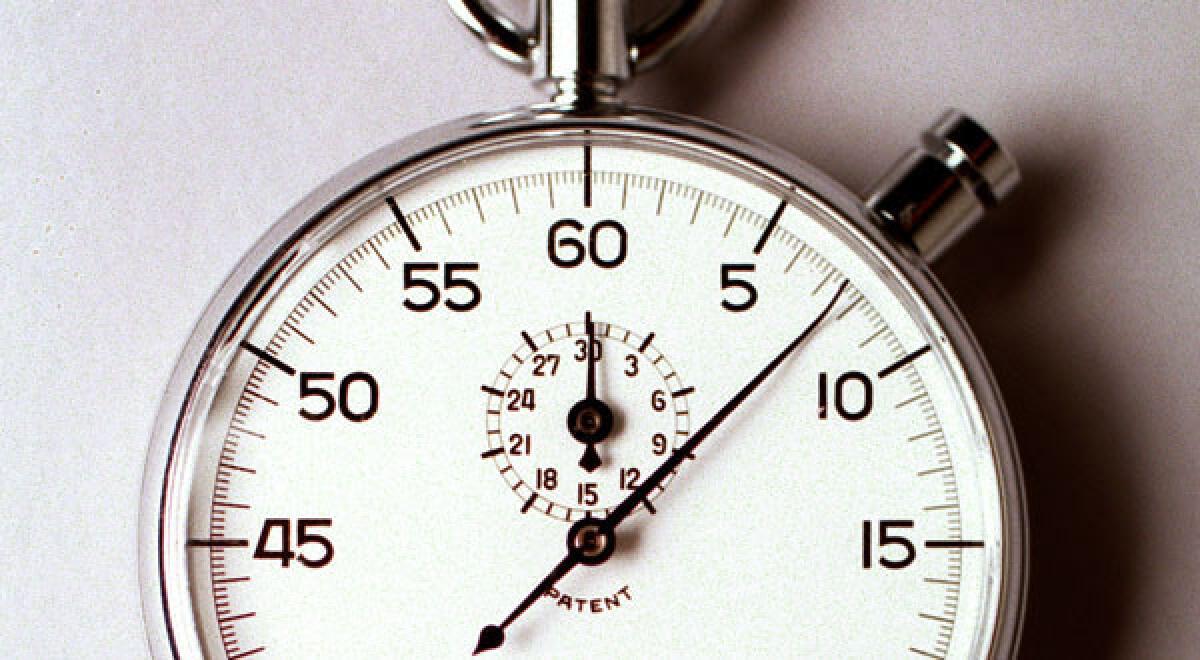People slow to react are more likely to die prematurely, study finds

Whether you’re naked and hungry on the savannah, driving in traffic or at the controls of your favorite video game, being slow to react can get you eaten, injured or splattered across the screen. While we intuitively know this, a new study offers dramatic evidence of how much speed of response still matters: In men and women from ages 20 to 59, slower than average reaction time turned out to be a pretty good predictor of premature death.
The new research, published this week in the journal PLoS One, was large, simple and highly revealing. Between 1988 and 1994, researchers gave 5,134 Americans adults under 60 a very straightforward test of reaction time: The participants, all part of a large federal study of American nutrition and health, were seated at a computer and told to push a button immediately upon seeing a 0 on the screen in front of them. There was no practice period; a participant’s average over 50 trials was computed, and he or she had just a few seconds between those 50 trials.
Want to try a similar test of reaction time? Try your hand at this (very fun) game.
The researchers measured the range of reaction times across the group. They computed a “standard deviation” -- a unit of measure that marks the extent to which an individual’s performance departs from the group’s average. They took note of the “variability” of each participants’ response time -- how widely reaction time fluctuated in the course of their 50 tries.
Then they waited close to 15 years to see who in this relatively young group of Americans would die, and of what.
Because the participants had been recruited for an ongoing study of health and nutrition, the researchers had a wealth of health-related information on them. They could use that data to adjust for risk factors such as age, gender and ethnicity.
In all, 378 of the participants died during a follow-up period that averaged 14.6 years -- 104 of cardiovascular deaths and 84 of cancer deaths.
When the researchers -- all from the University of Edinborough -- went back to compare participants’ response times with their likelihood of being among the dead, they detected a clear pattern: for those with slow reaction times, each standard deviation that separated an individual’s performance from the group’s average increased his or her likelihood of dying by 25%.
Those who were slower than the group average by four standard deviations were twice as likely as those whose performance was average to have died over the 15-year follow-up period.
High variability in response time was also linked to a higher risk of death in the study. But those with high variability in response-time also tended to be the same people who response time was slower-than-average.
The authors noted that response time and variability were as powerful at predicting the likelihood of death as was another influential risk factor for death: smoking.
Response speed was much more likely to predict cardiovascular death than it was to predict death by cancer. This suggests that long before a stroke or heart attack fells its victim, the creeping progress of narrowing arteries, inefficient blood flow and weakening hearts might be evident as a slowing of response time, the study authors wrote.



